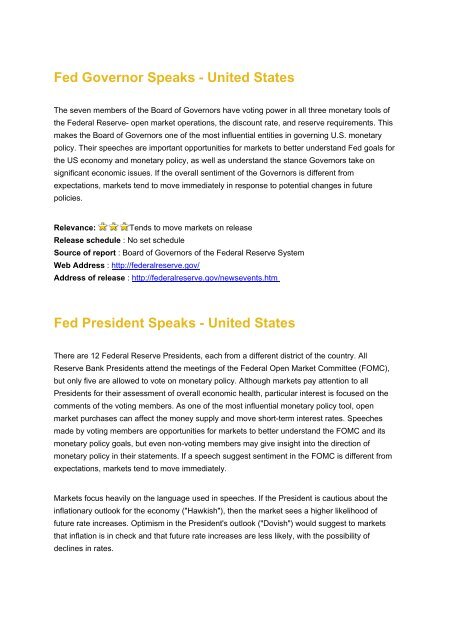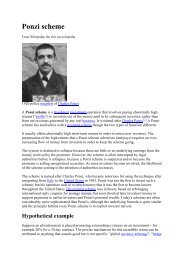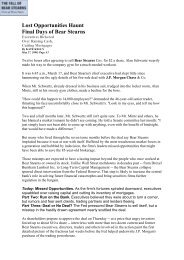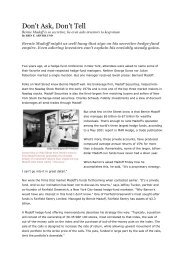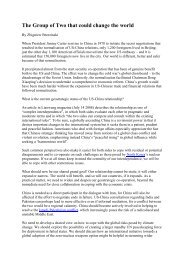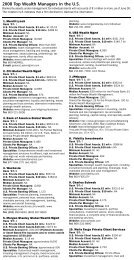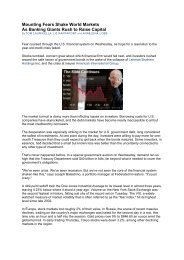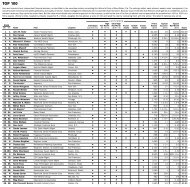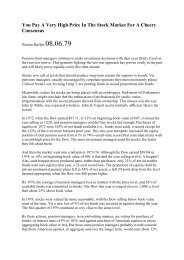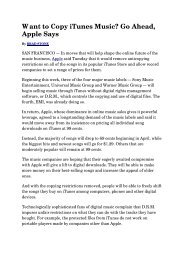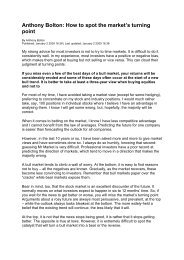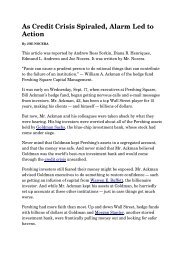PCE Deflator, (Personal Consumption Expenditure ... - Morningbull
PCE Deflator, (Personal Consumption Expenditure ... - Morningbull
PCE Deflator, (Personal Consumption Expenditure ... - Morningbull
Create successful ePaper yourself
Turn your PDF publications into a flip-book with our unique Google optimized e-Paper software.
Fed Governor Speaks - United States<br />
The seven members of the Board of Governors have voting power in all three monetary tools of<br />
the Federal Reserve- open market operations, the discount rate, and reserve requirements. This<br />
makes the Board of Governors one of the most influential entities in governing U.S. monetary<br />
policy. Their speeches are important opportunities for markets to better understand Fed goals for<br />
the US economy and monetary policy, as well as understand the stance Governors take on<br />
significant economic issues. If the overall sentiment of the Governors is different from<br />
expectations, markets tend to move immediately in response to potential changes in future<br />
policies.<br />
Relevance: Tends to move markets on release<br />
Release schedule : No set schedule<br />
Source of report : Board of Governors of the Federal Reserve System<br />
Web Address : http://federalreserve.gov/<br />
Address of release : http://federalreserve.gov/newsevents.htm<br />
Fed President Speaks - United States<br />
There are 12 Federal Reserve Presidents, each from a different district of the country. All<br />
Reserve Bank Presidents attend the meetings of the Federal Open Market Committee (FOMC),<br />
but only five are allowed to vote on monetary policy. Although markets pay attention to all<br />
Presidents for their assessment of overall economic health, particular interest is focused on the<br />
comments of the voting members. As one of the most influential monetary policy tool, open<br />
market purchases can affect the money supply and move short-term interest rates. Speeches<br />
made by voting members are opportunities for markets to better understand the FOMC and its<br />
monetary policy goals, but even non-voting members may give insight into the direction of<br />
monetary policy in their statements. If a speech suggest sentiment in the FOMC is different from<br />
expectations, markets tend to move immediately.<br />
Markets focus heavily on the language used in speeches. If the President is cautious about the<br />
inflationary outlook for the economy ("Hawkish"), then the market sees a higher likelihood of<br />
future rate increases. Optimism in the President's outlook ("Dovish") would suggest to markets<br />
that inflation is in check and that future rate increases are less likely, with the possibility of<br />
declines in rates.


